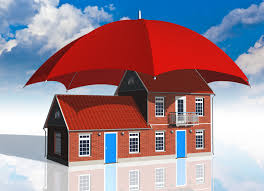How To Develop An Emergency Plan For Your Property
Being a landlord is not quite as easy as it might seem. The thing with being a landlord, even with the best of tenants, is that when problems do arise, they tend to be serious and emergencies can happen at any time; so it is best to be constantly prepared for the worst.
By having an emergency plan for your property and your tenants, that sketches how to prevent excessive damage or loss in extreme circumstances, you will help reduce stress, injury, anxiety and destruction to the property.
#1. Create your emergency contact number
If emergencies arise, you’ll need to have ways for your tenants, police and other emergency services to get in touch with you easily. Your email alone will not be a sufficient means of emergency communication.
If you are not comfortable using your personal contact details for this purpose, you can employ an answering service as the point of emergency. You can simply perform a search on the internet and you’ll find options to choose from.
Give the emergency service your personal contact number, along with a list of situations you consider to be emergencies. Your tenants will also be able to call this number when they have an emergency and the service will reply either by providing instructions or by contacting the proper authorities.
#2. List All Emergency Numbers Plain Sight
Give all your tenants a list of emergency numbers which should include, but is not limited to, your emergency contact number, fire department, gas Company, police department, electric company, poison control center and numbers for the emergency medical center.
#3. Let tenants know what constitutes a real emergency
It’s vital that your tenants understand the difference between an inconvenience and a genuine emergency. Emergencies are circumstances that should be handled immediately, inconveniences do not need immediate attention, although it’s important to reply in a timely manner.
You also supply your tenants with an emergency action plan, which should also include the type of emergency, when you, wish to be contacted, and who else may be contacted.
#4. Advise All Tenants to Purchase Renters Insurance
Most landlords’ insurance policies only shelter the actual structure of the building and the land on which the building is located. They do not cover the possessions of the tenants or a tenant’s liability for an accident inside their residence.
Its highly recommended that tenants buy renter’s insurance to protect their valuable possessions in case of any damage caused by storms, fire or flood, or from a theft. Tenant’s insurance can protect a tenant from a liability lawsuit in the event that someone is injured in their home.





